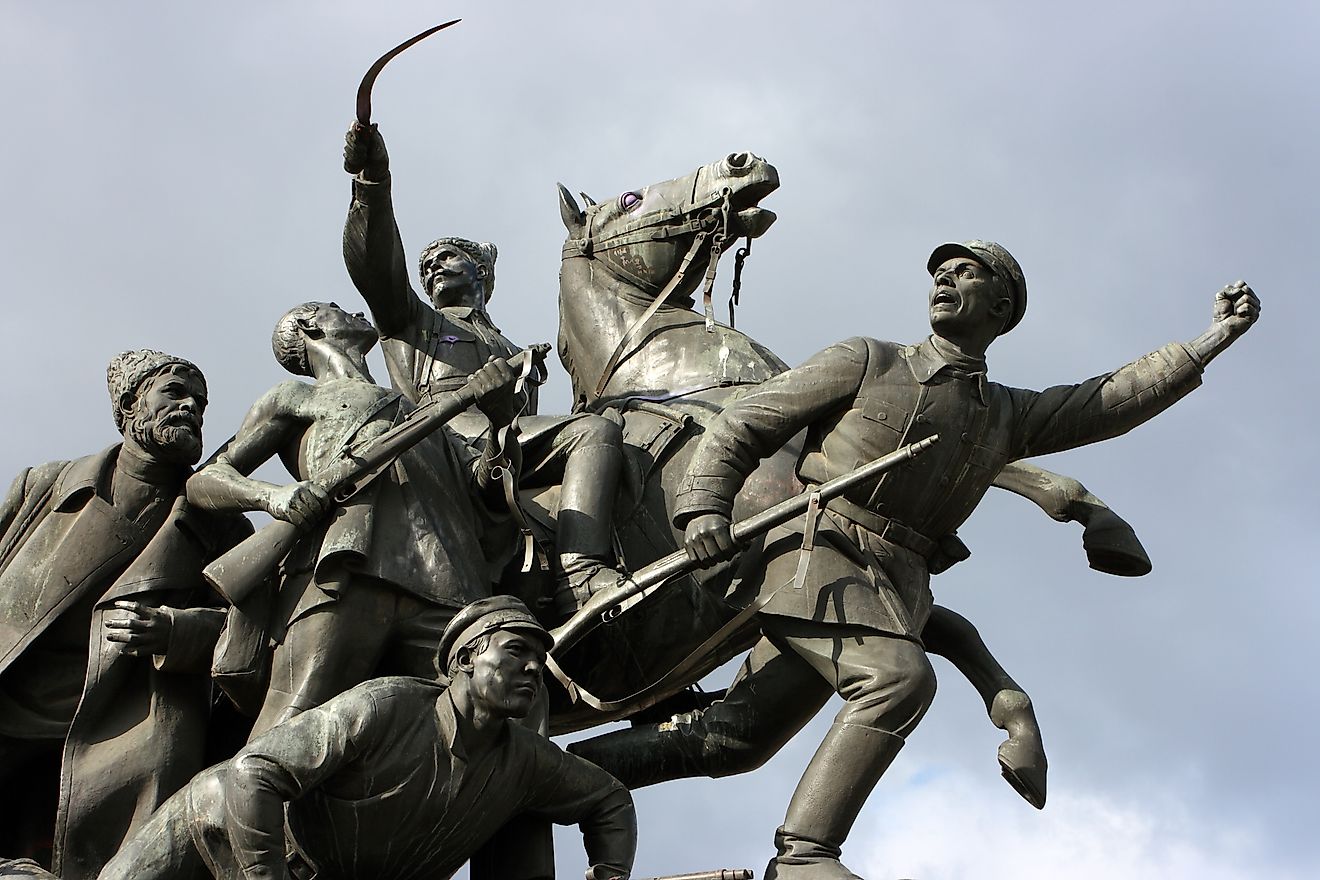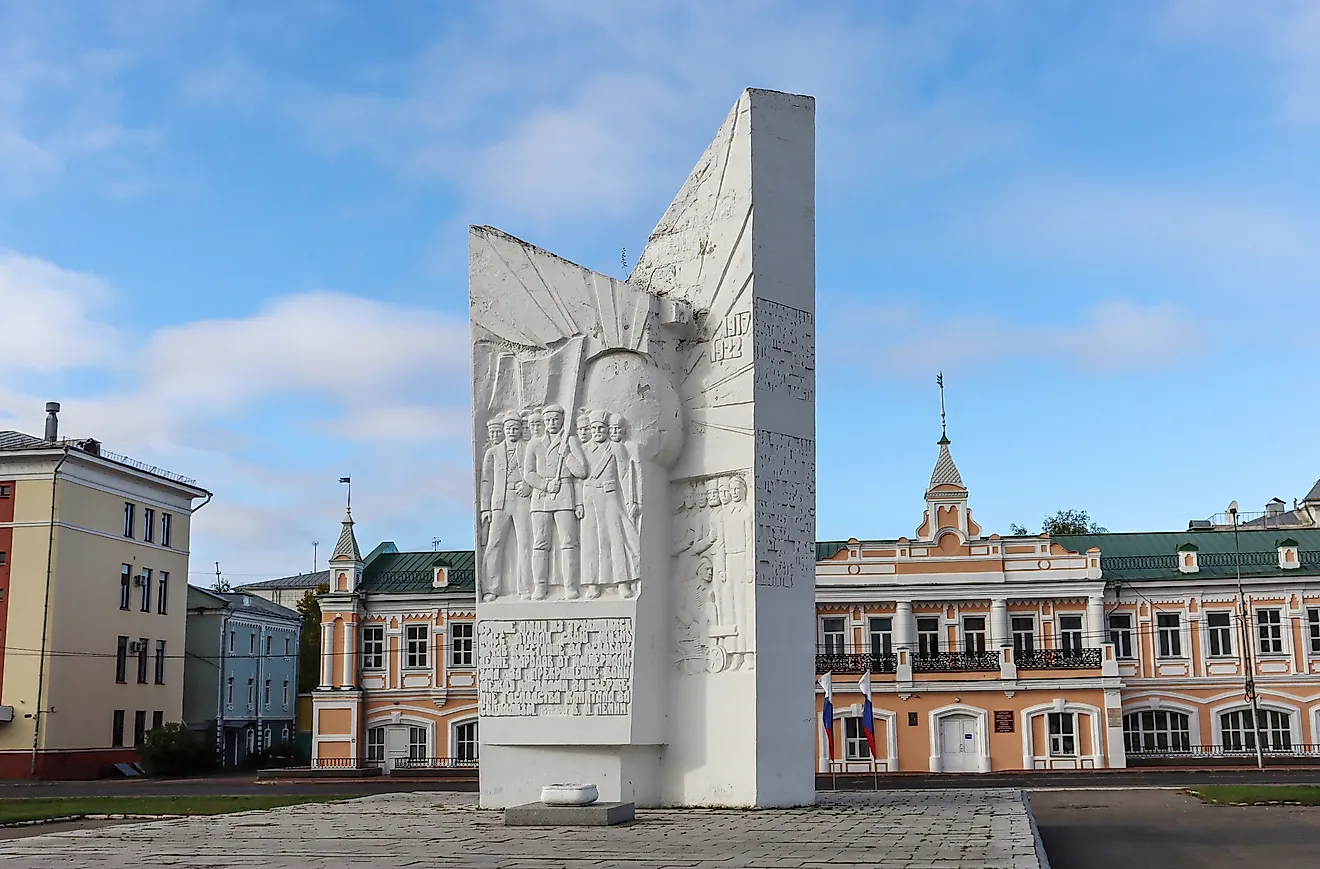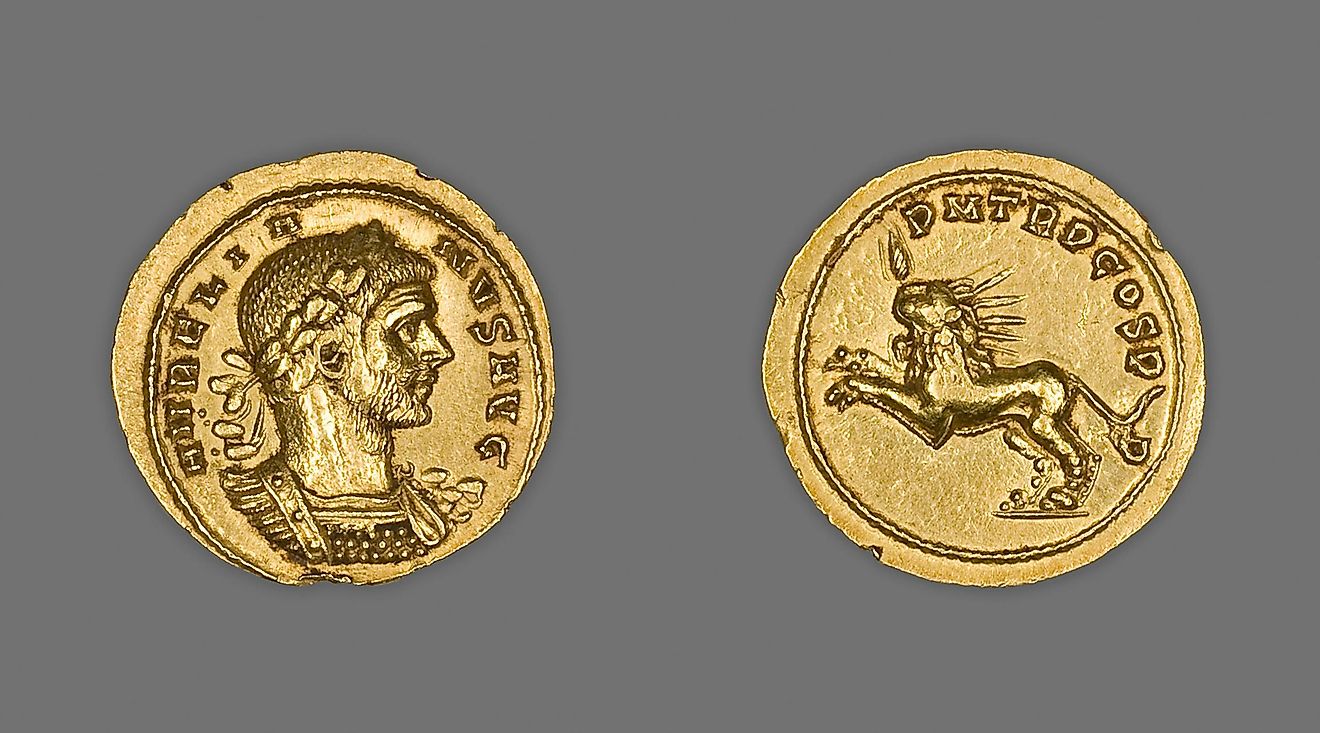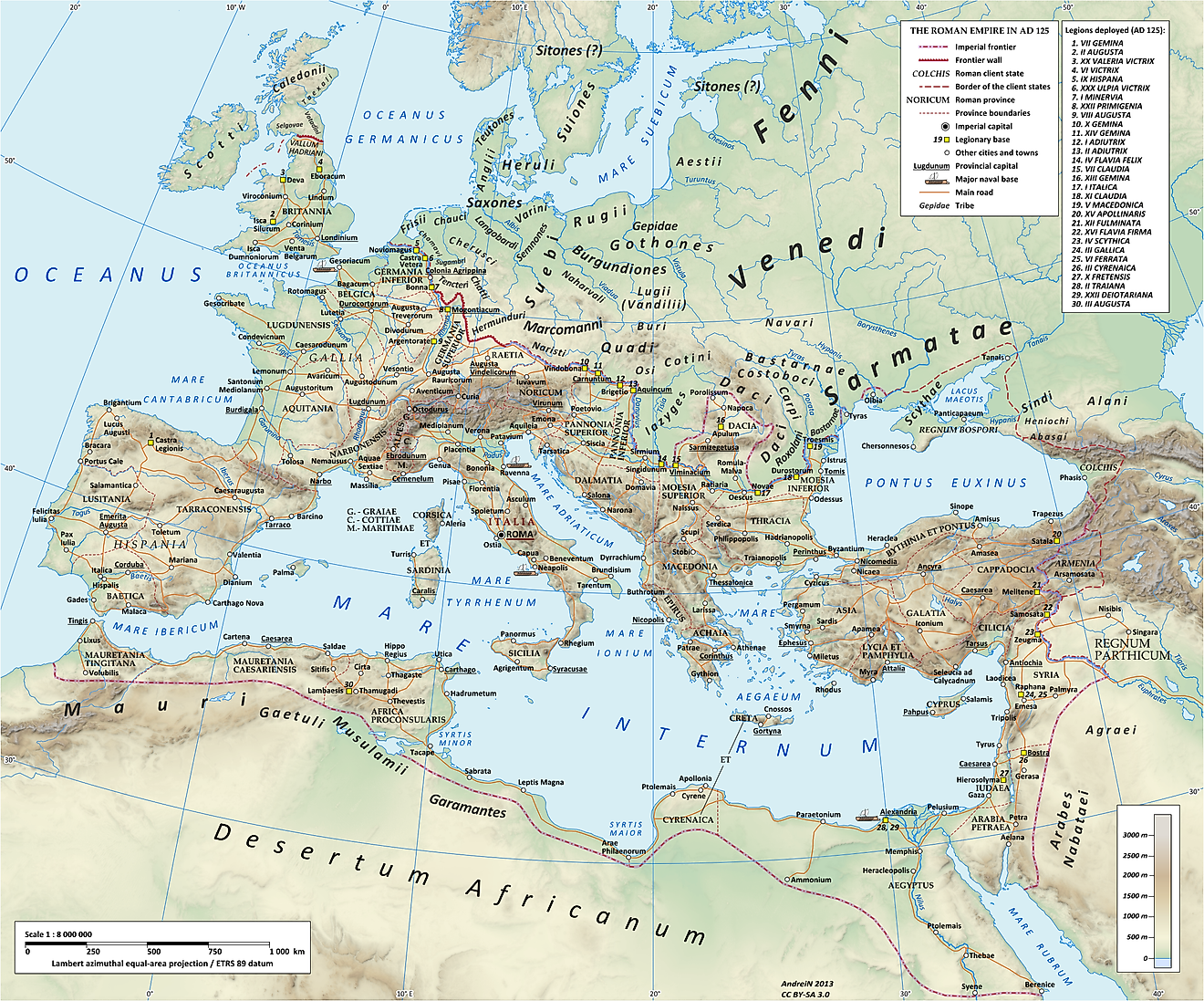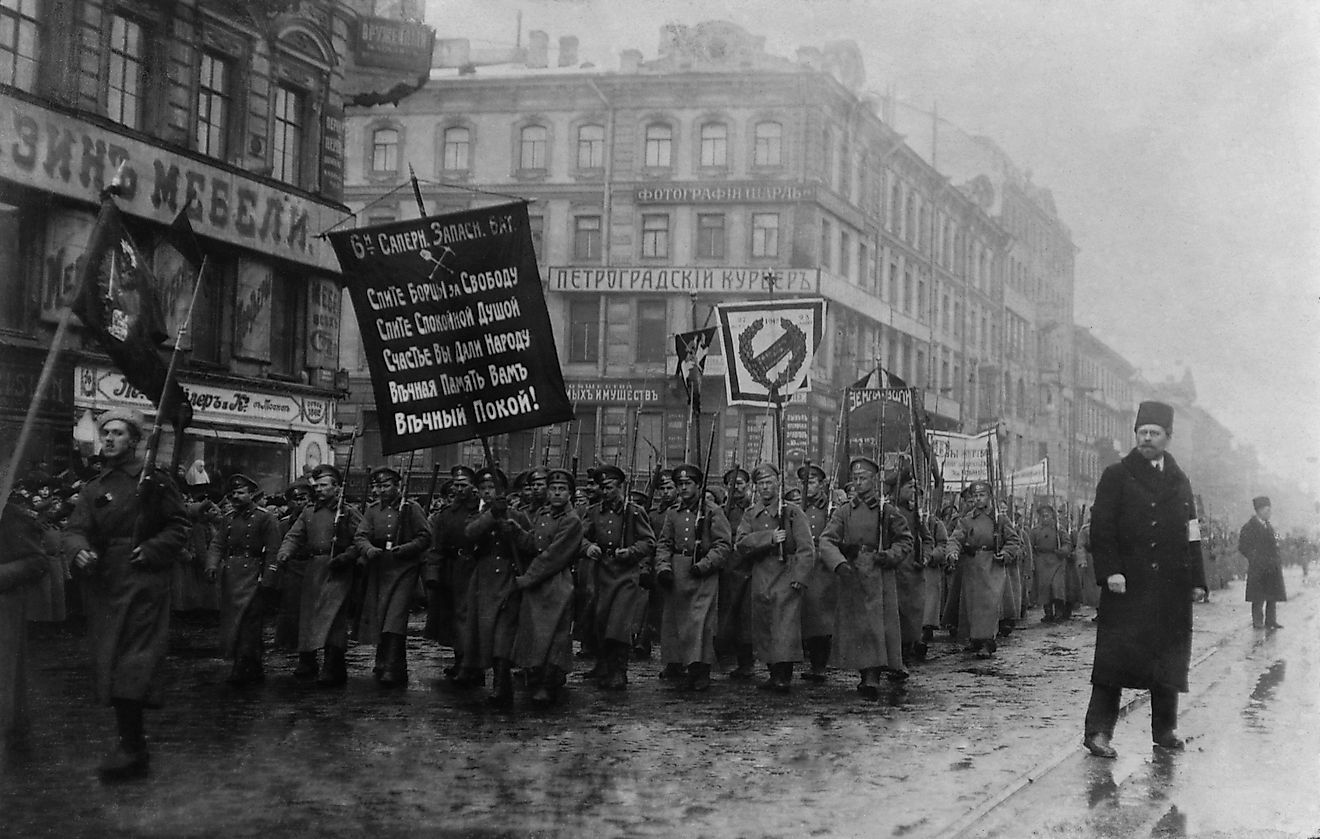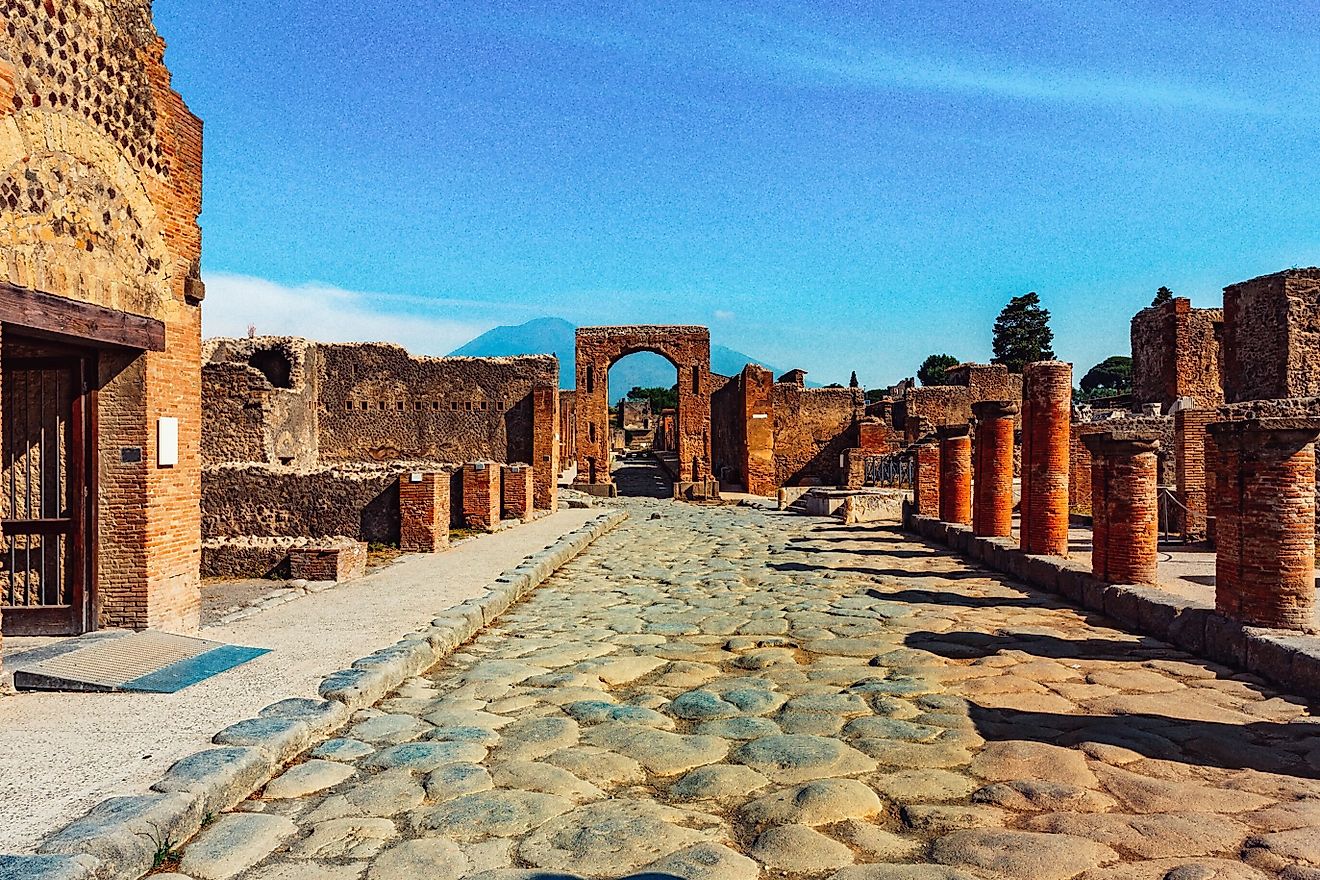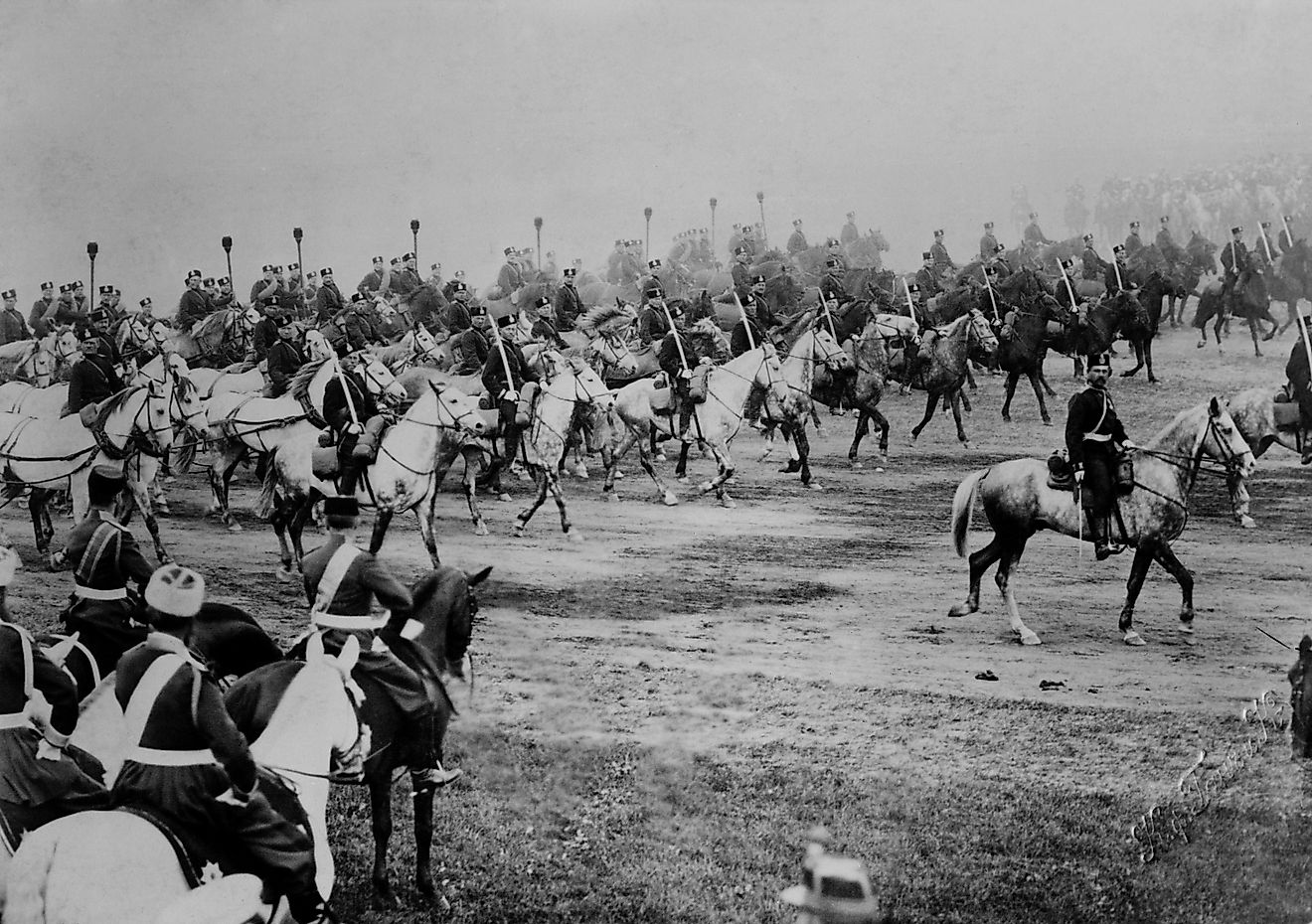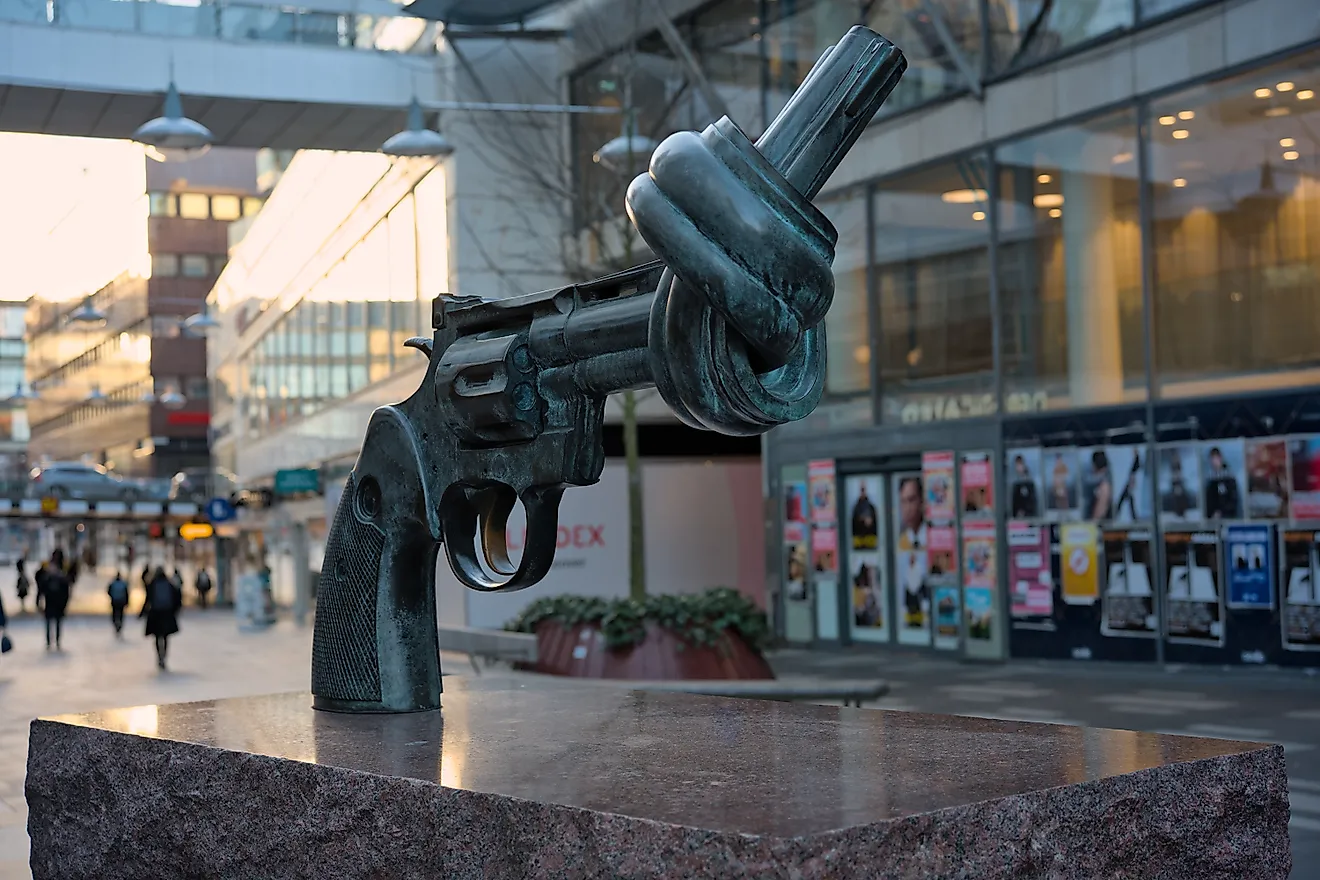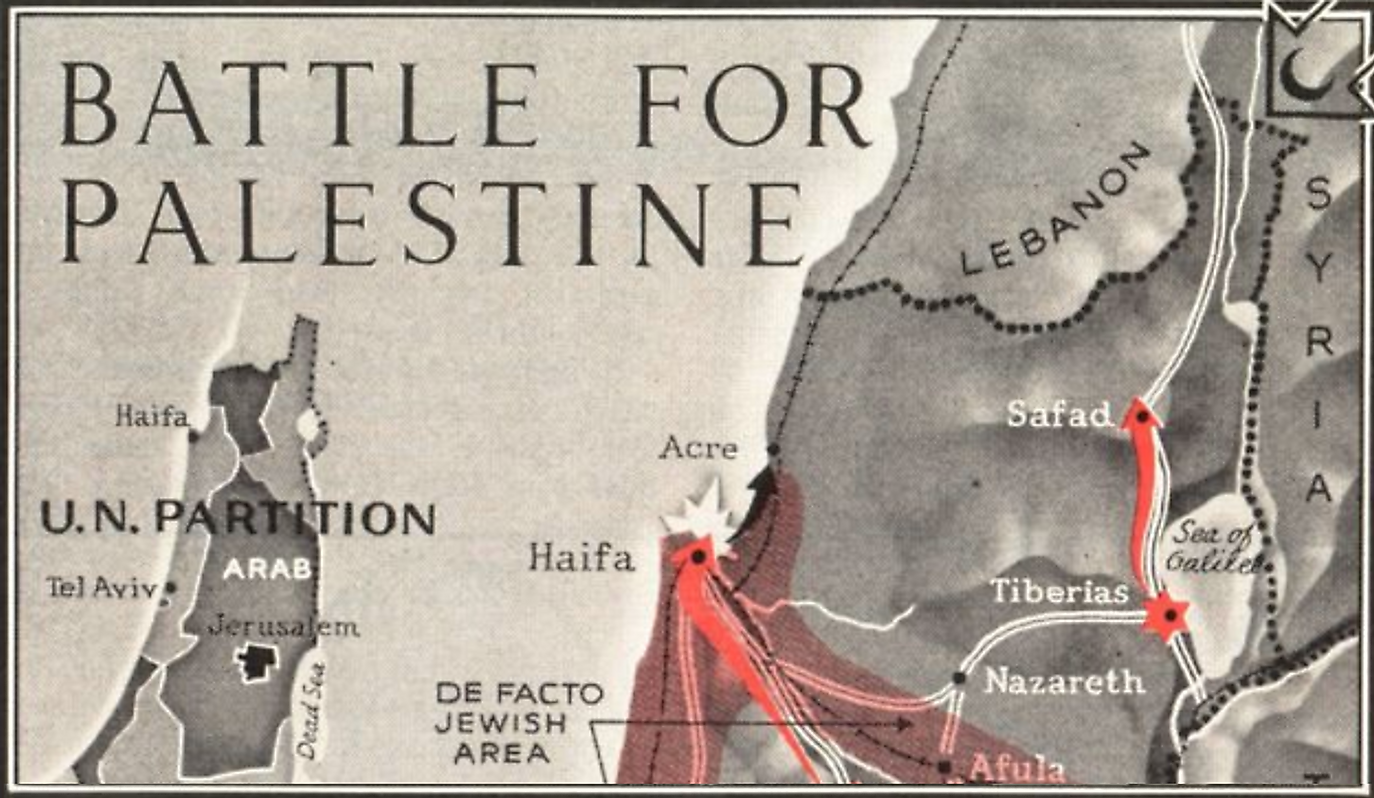
World War II and the 1948 Arab–Israeli War
World War II was a landmark event in the history of the Israeli-Palestinian conflict. The enormous geopolitical shift caused by the Holocaust turbocharged plans to create a Jewish state in Palestine. This ultimately resulted in two wars in the region, a civil war in Mandate Palestine from November 1947 to May 1948, and another from May 1948 to March 1949 between the newly created state of Israel and a coalition of Arab states.
World War II and the Holocaust
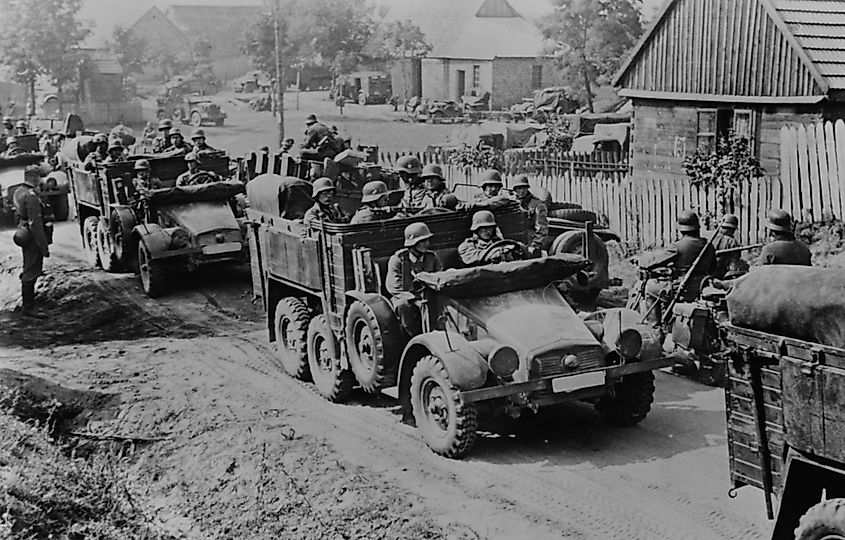
World War II began on September 1st, 1939, when Germany invaded Poland. Quickly overwhelming the Polish forces, the German Army (the Wehrmacht) then turned to the West, invading the Low Countries (the Netherlands, Belgium, and Luxembourg) and France in early 1940. The next major military campaign was Operation Barbarossa, Germany's invasion of the Soviet Union (USSR), which began on June 22nd, 1941. Despite initially making steady progress, the Wehrmacht got bogged down and beaten back in Moscow and Stalingrad, and from early 1943 onwards, they were consistently on the defensive. When paired with the Allied invasions of Italy and Normandy in the summers of 1943 and 1944, respectively, the war was more or less lost for Germany. Rather than face capture, Adolf Hitler committed suicide on April 30th, 1945, and Germany surrendered a week later.
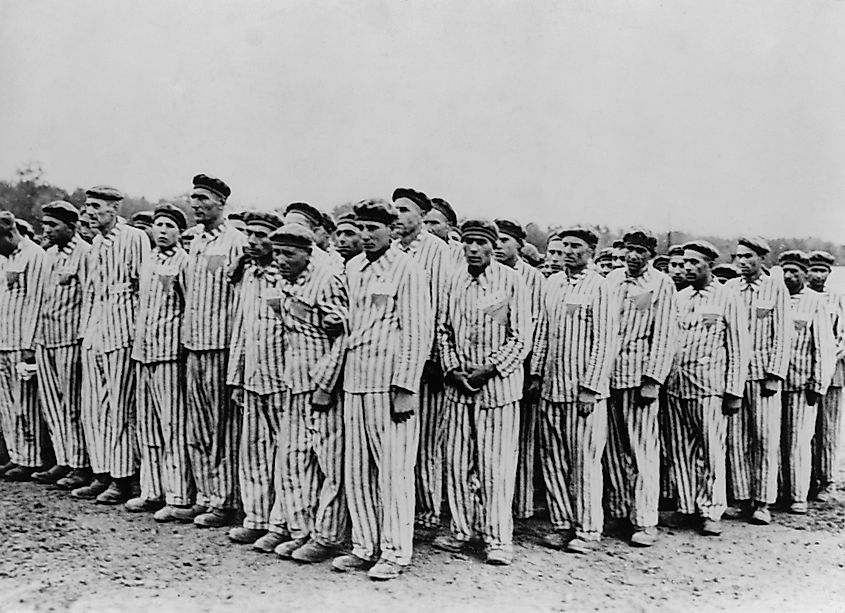
To properly understand World War II, one must comprehend its genocidal nature. According to Hitler, the nature of the world was one of struggle, particularly struggle between races. A key component in this struggle was having enough living space (Lebensraum). Hence, Germany invaded the Soviet Union to procure ample living space for the "Aryan" race. However, the "Jews" supposedly disrupted this struggle-based nature by introducing ideas like democracy, communism, capitalism, and human rights. Therefore, according to Hitler, this necessitated a "solution" to the "Jewish problem". After a steady escalation of antisemitic laws and policies, the full-scale systemic mass murder of Jews (and other groups like Slavs and Romani) began during the invasion of the USSR, first by death squads known as Einsatzgruppen and then via death camps like Auschwitz and Treblinka. In total, about six million Jews died in the Holocaust.
The United Nations Partition Plan
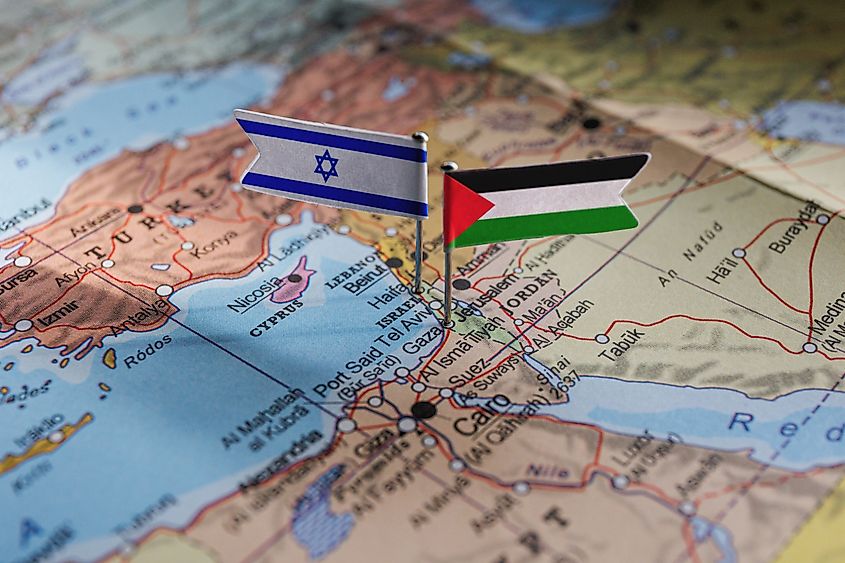
The mass murder of Jews in Europe had enormous ramifications for plans to create a Jewish state. In the years before the war, the promises of the Balfour Declaration, the 1917 British document that assured the facilitation of a "Jewish homeland" in Palestine, were coming undone. This was largely due to colonial mismanagement and the irreconcilability of fostering both a Palestinian and Jewish national identity on the same territory. However, the immense number of Jewish refugees after World War II, paired with international sympathy regarding Jewish suffering, caused plans for the creation of a Jewish state to be reignited. In particular, the United States (US) pressured the United Kingdom (UK) to allow for more Jewish immigration to Palestine. Reluctant to do so due to their promises to restrict Jewish immigration in the 1939 White Paper, the British abdicated responsibility to the newly created United Nations (UN).
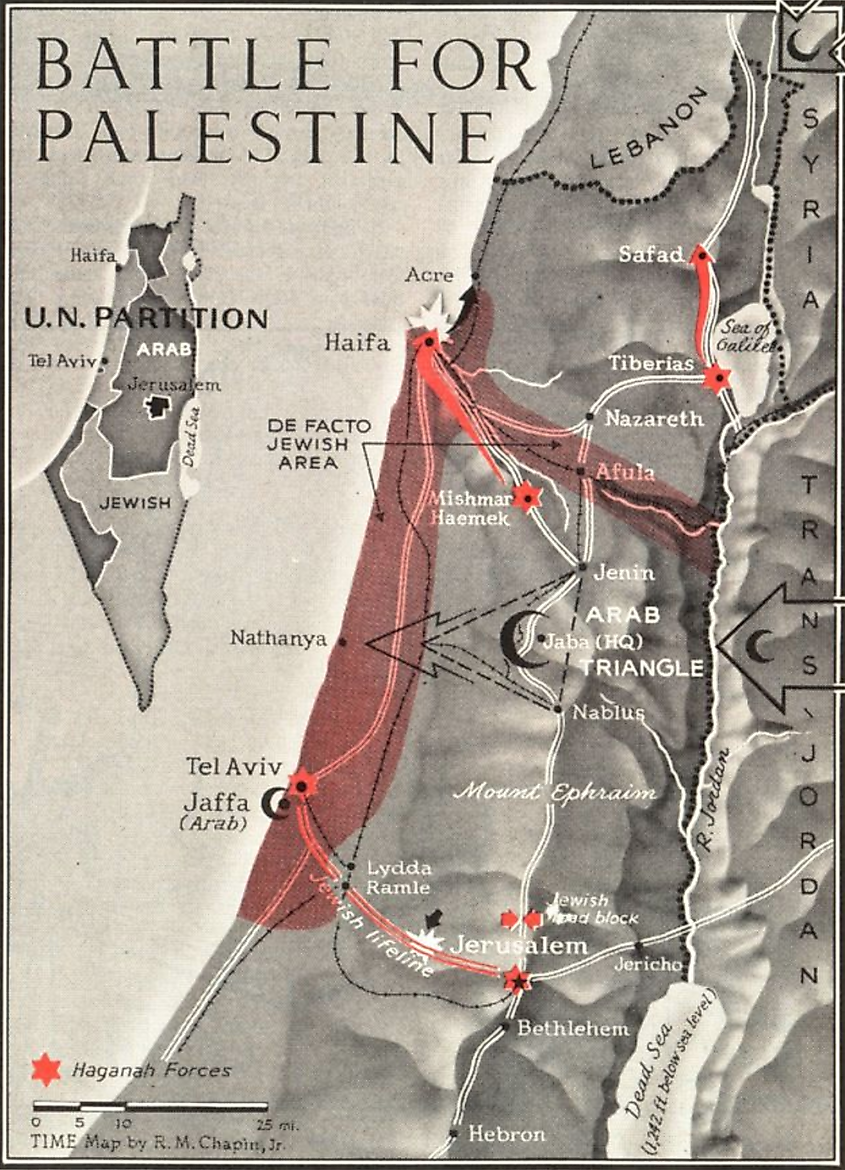
The UN put together a committee to deal with Palestine. Named the United Nations Special Committee on Palestine, it concluded that partition was necessary. Thus, on November 29th, 1947, the UN General Assembly adopted the partition plan created by the committee. It functioned as follows. Palestine was to be divided into seven areas: three for the Jews, three for the Arabs, and the seventh, Jerusalem, to be under international control. The proposed Arab state comprised 42% of the territory, the Jewish state 56%, and the international zone made up the remaining 2%. Crucially, there was no actual international enforcement of this partition plan on the ground, leaving the two sides to figure it out themselves. This set the stage for violence.
The War(s) for Palestine and the Different Interpretations
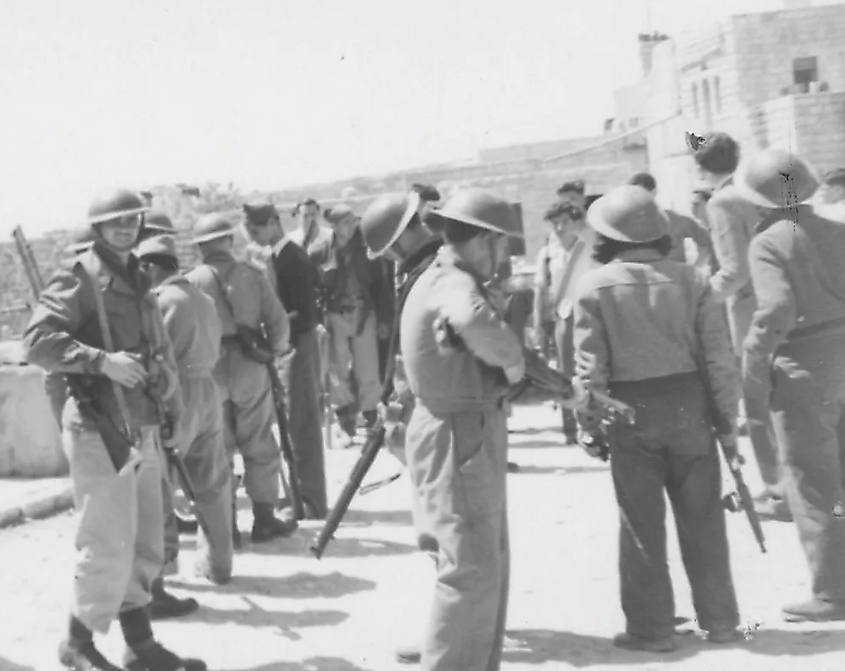
A civil war between the Arabs and Jews broke out soon after the partition plan was adopted. This saw atrocities committed by both sides, the most notable examples of which were an attack on the village Deir Yassin, which saw 100 Arabs killed, and a retaliatory strike on a Jewish convey that killed 78. Throughout all of this, British troops were preparing to withdraw from Palestine, doing so on May 15th, 1948. The day before, Israel declared its independence, prompting a larger regional war when Egypt, Transjordan, Syria, Iraq, and Lebanon all invaded soon afterward.
Despite the overwhelming size advantage of the combined Arab armies, Israel managed to beat them back. Indeed, the Israeli Defense Force (IDF) (the Israeli Army ) was well organized, and with memories of the Holocaust fresh in Israelis' minds, the soldiers were also highly motivated. Furthermore, since the Arab states were recently independent, their armies were new, poorly trained, and lacking motivation, making them largely ineffective. Hence, between February and July 1949, armistice agreements were reached between Israel and the Arab states. By the end of the war, Israel occupied 78% of the former Mandate Palestine, leaving 22% to the Palestinian Arabs. Moreover, between 650,000 and 750,000 Palestinian Arabs, approximately half of the Palestinian Arab population, were displaced.
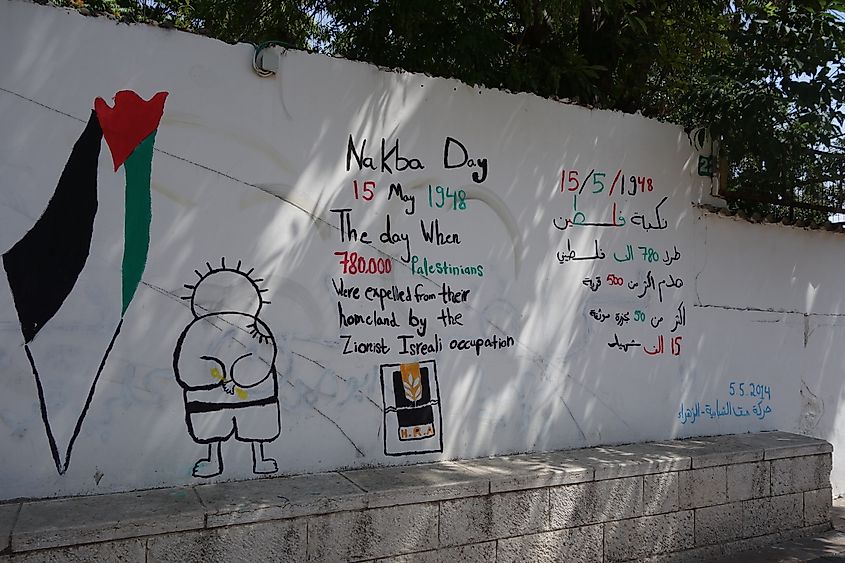
The history of the 1947-1949 wars has been highly contested. The conventional Zionist perspective, and the one taught in Israeli schools in the decades following the country's founding, is that these were wars for independence fought in the aftermath of the attempted extermination of Jews in Europe. This perspective also posits that the Palestinians willingly fled from their homes during the war. However, the New Historians (a term coined by Benny Morris in 1988 to describe a group of Israeli historians challenging this nationalist perspective) criticizes this narrative, utilizing newly available primary sources to highlight the role that the Israeli Army played in expelling the Palestinians. Finally, from the Palestinian perspective, these wars resulted in the Nakba (the Arabic word for "catastrophe"), the purposeful ethnic cleansing of the Palestinian population from their homeland.
Final Thoughts
World War II turbocharged plans to create a Jewish state. A partition plan was thus created by the UN, which ultimately led to the wars of 1947-1949. The nature of these wars and their consequences have been and continue to be debated, with the traditional Zionist, New Historian, and Palestinian perspectives all differing in their accounts.
